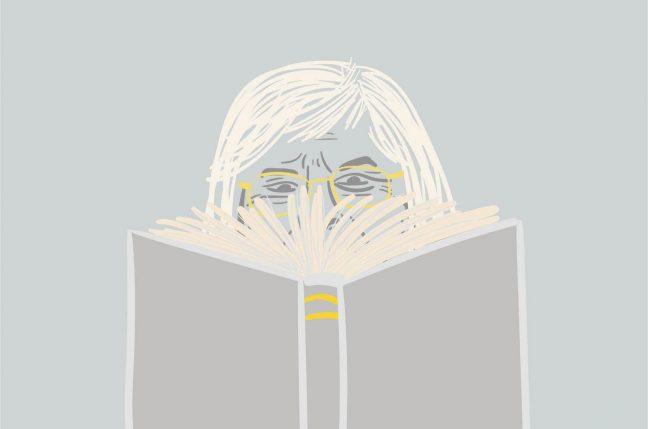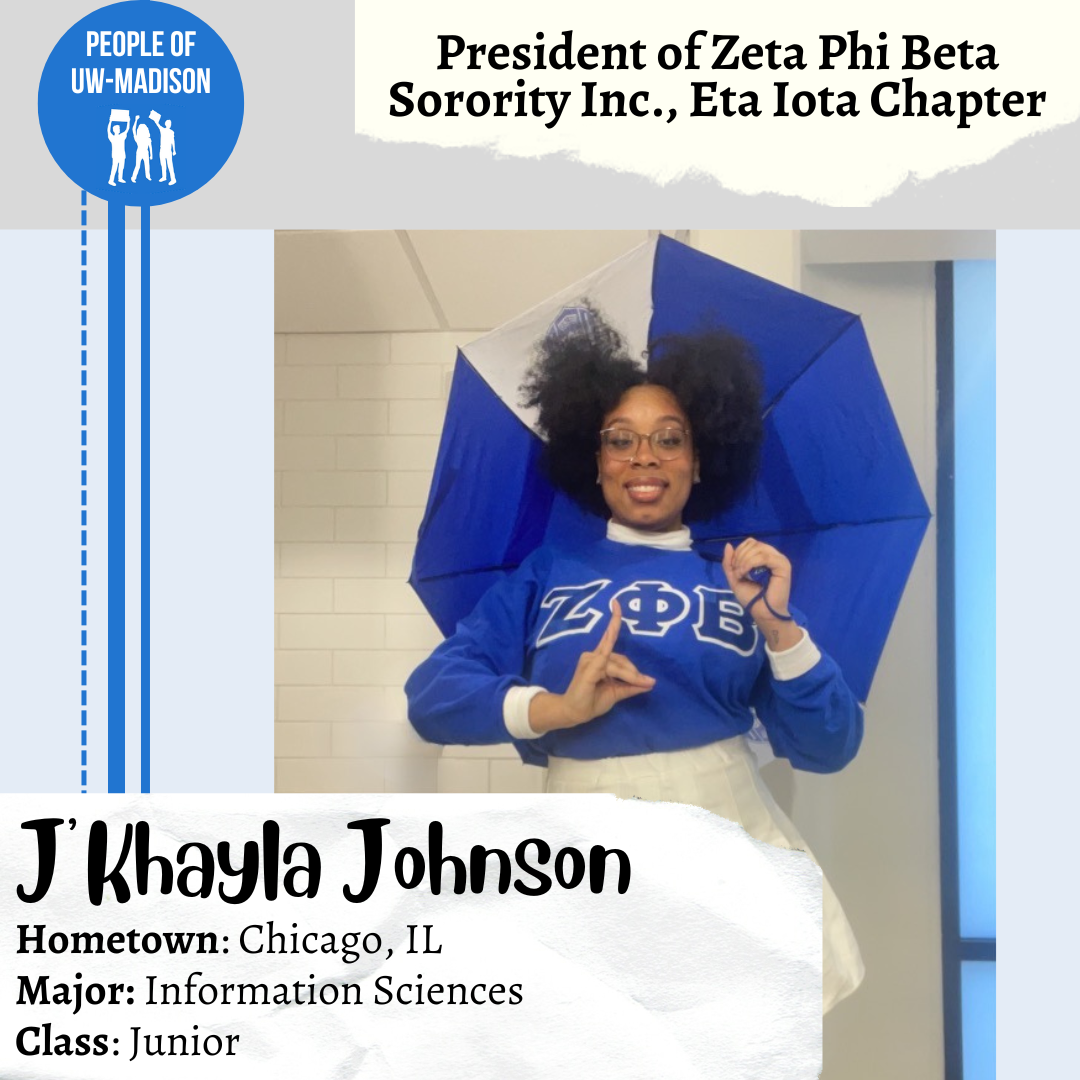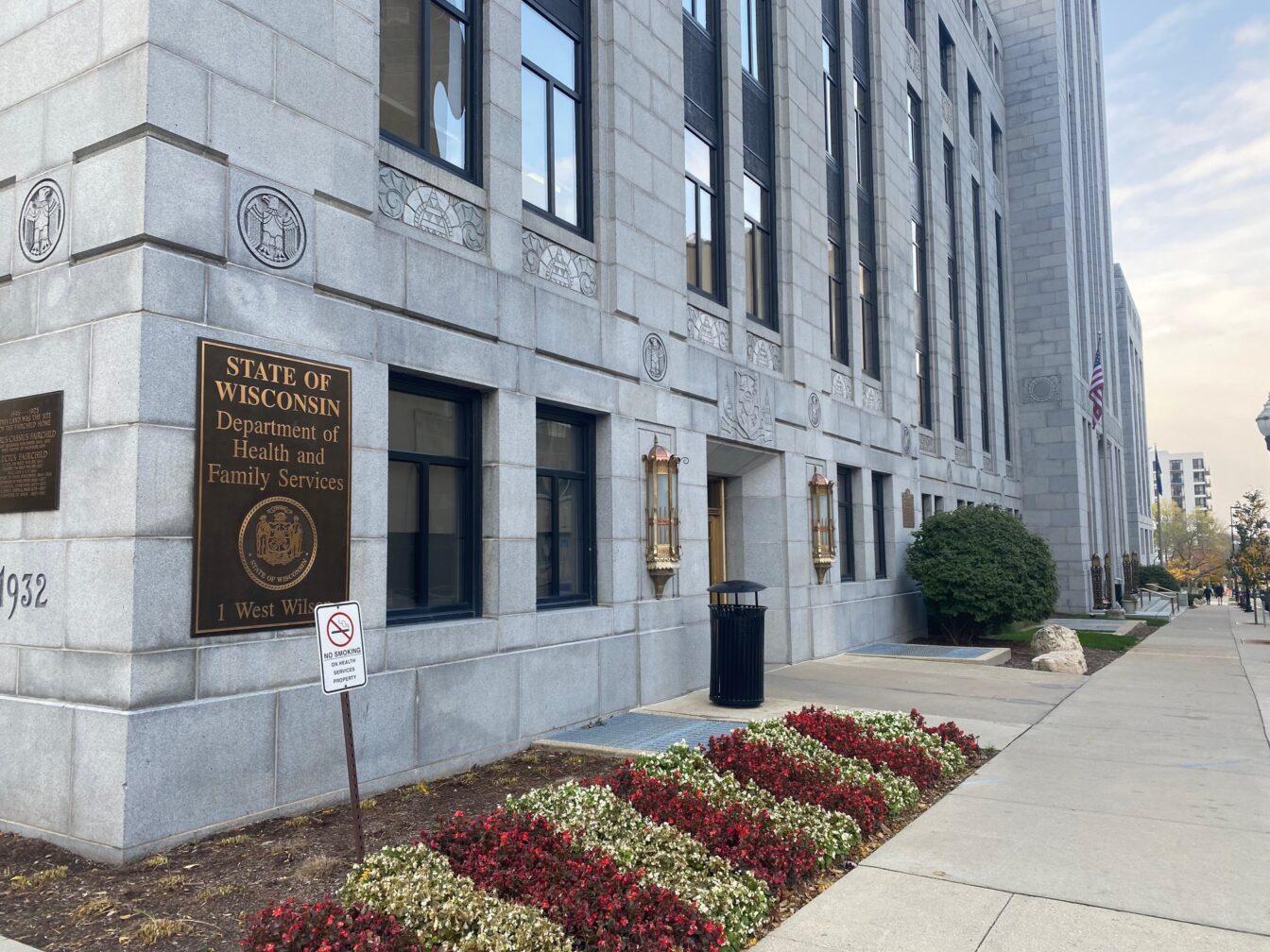When 70-year-old Jane Brotman arrived on the University of Wisconsin campus as a freshman in 1967, she was skeptical of anti-war protestors. During her adolescence in northern New Jersey, she didn’t pay much attention to politics — she even described herself as closed-minded in the years leading up to her undergraduate experience.
“I was very naive politically when I first came to campus,” Brotman said. “I wasn’t even against the Vietnam War. My mother was against [it] before I was, which was odd.”
Her political views up until that point had been predicated on what the government told her — she said she couldn’t understand the logic behind the sit-ins and walkouts that characterized a decade of American resistance. But on a brisk October afternoon, her mindset permanently shifted.
Brotman, as she’d done plenty of times before, took her regular route to French Literature past Ingraham Hall, then named the Commerce Building.
That day, however, things felt different.
Hundreds of students had gathered at the building’s entrance to protest the Dow Chemical Company recruitment interviews set to take place there later that day. Dow produced napalm, a chemical weapon designed to burn like gasoline and stick like glue, making it a disturbingly effective agent of death during the Vietnam War.
Protesters aimed to bar prospective students from attending their interviews with Dow job recruiters by filling halls and overwhelming police officers there to maintain order. The demonstration began peacefully, but tensions between students, interviewees and law enforcement grew exponentially after attempted arrests and physical altercations ensued.
Police charged three protestors with disorderly conduct for blocking an interview entrance and put them under arrest. The students resisted and more protesters flooded the halls, prompting UW Police Department Chief Ralph Hanson to call every available officer to the scene. As the crowds grew, so did the threat of violence.
City officers arrived at the scene protected by helmets and armed with riot sticks. The threatening equipment insinuated an eventual confrontation, and as officers entered the building now filled with hundreds of additional students and demanded the protest cease, violence broke out.
Some demonstrators hurled rocks, sticks and pipes, among other objects, at officers, who responded by bludgeoning crowd members repeatedly with their riot sticks. After the demonstration-turned-battle moved outdoors, Madison Police Chief Wilbur Emery approved the use of tear gas to thin the crowds.
Adult student’s dedication to education sets example for nontraditional students
It was at this moment that Brotman, school supplies in tow, passed the Commerce Building.
And after witnessing police brutally apprehend her fellow classmates, Brotman was forever changed.
“It was a very powerful experience that lead me to be open to hearing alternative points of view about the war,” Brotman said. “I hadn’t been emotionally open to hearing those things prior to that moment. It changed me, it’s still very much with me in terms of trying to be active in the world.”
The worldview she’d become accustomed to was shattered, and with its destruction came a ripe learning opportunity. She saw first-hand the limits people were willing to push for justice, and wanted to learn more about the war that was driving people to such extremes.
Brotman’s biggest concern when she awoke that fateful day was her first undergraduate exam scheduled for the following morning. But the day after the Dow demonstrations, she was among the more than 3,000 students who boycotted class to support protesters and demand the university permanently ban city police from campus.
The energy Brotman felt in 1967 as she marched down Library Mall, keen to learn more about the context of the war, still courses through her as she sits in the rear of UW classrooms today as a senior guest auditor.
“This university has had a major impact on my life, and being an auditor connects me to this place,” Brotman said. “[UW] turned me on to a passion for learning that’s never left me. As you can see, I’m still here.”
Brotman’s story is one of many shared by the grey-haired, bespectacled and soft-smiling UW senior auditors who are fueled by an insatiable appetite for knowledge. On campus and across Wisconsin at-large, unparalleled access to higher education is free to senior citizens, partially quenching their thirst and opening them up to topics that have arisen with changing times.
Freedom to explore
In February 1905, UW President Charles Van Hise delivered an address to the Wisconsin Press Association in which he outlined his vision for the university’s legacy. Though the address predated the formal introduction of “The Wisconsin Idea,” his philosophies laid a clear groundwork for the school’s future.
“The university is an institution devoted to the advancement and dissemination of knowledge,” Van Hise wrote. “The government of the state is devoted to formulating into written law and putting into practice this knowledge. I shall never be content until the beneficent influence of the University [sic] reaches every family of the state.”
Van Hise’s principles of inclusion and accessibility, adopted more than a century ago, were later reflected by Charles McCarthy in his landmark book, “The Wisconsin Idea.” McCarthy’s philosophies were nationally recognized for their progressive prowess and eventually became linked to UW’s commitment to public service.
The foundation constructed by the two is still at work today.
Wisconsin residents over the age of 60 are afforded free access to the majority of UW System courses, with the exception of classes characterized by high levels of activity. These generally include physical education, writing, math, performing arts, studio arts and language courses, to name a few.
“For me, it’s a privilege to be on campus,” Baker said. “This is one of the sacred places in the world where people come just for one thing — to teach and learn. These courses act as a prompt … It’s like sowing seeds in a garden — you don’t know when they’re going to [sprout], but they eventually will.”
But courses in history, religious studies, sociology and more are fully available to interested seniors. UW auditors may also freely access additional campus resources, including libraries and computer labs to round out their academic experience.
A senior guest auditor program is not unique to UW, but its financial model sets it apart from other Midwestern state schools. Indiana state law requires its universities to offer classes to senior citizens at a 50 percent price reduction — which is discounted, but far from free.
Multiple Michigan colleges offer free or reduced-rate classes to senior citizens, but the state’s two biggest schools — Michigan State University and the University of Michigan — don’t have programs that offer classes to that demographic.
Iowa is home to two large research universities in the University of Iowa and Iowa State University, neither of which offer any discounts to senior citizens. In fact, the only Iowa school that does is Simpson College, a 1,250-student, liberal arts school which affords senior citizens the chance to take just one free, non-credit class per semester.
The privilege of attending classes for free at a school like UW — with its decorated teaching staff — is not lost on the auditors who take advantage of the opportunity.
Paul Baker is 63 and has lived in Madison since 1984. He earned his Bachelor’s degree in English literature from the University of Kentucky in 1977. In the time before he headed back to graduate school, he pursued jazz music as a drummer for five years, washing dishes and working odd jobs to help pay bills.
His future as a full-time musician didn’t pan out, so Baker re-enrolled at UK and earned his Master’s in English literature in 1984 before moving to Madison for a career in communications within the UW School of Education. Before Baker’s retirement, his wife had audited history classes, and she encouraged him to do the same.
“I could tell when she came home she was all charged up, she wanted to talk about all she’d learned in class that day … She laid the groundwork for me,” Baker said.
For the last two years, Baker has taken a mix of history courses that play an integral role in his life. They’re mainly classes he wasn’t able to take as an undergraduate because they weren’t in-line with his academic path.
What’s more, he at times felt uninterested in his professional career, so the chance to re-engage with new material as he once did as a young college student feeds an appetite left unsatisfied for years.
“I’m just gorging, I feel like a kid in a candy story,” Baker said. “It’s [all] very nourishing.”
Baker wouldn’t be able to interact with history in the way he does now were it not for the freedom to explore, guaranteed by the UW System class audit policy. He has no plans to stop taking classes — in fact, he’s loaded his schedule with four this semester.
With each class he takes, Baker said his appreciation for the program’s format grows. He’s not sure what classes he’ll take in the future, but he knows those he’s taking now will guide him there.
“For me, it’s a privilege to be on campus,” Baker said. “This is one of the sacred places in the world where people come just for one thing — to teach and learn. These courses act as a prompt … It’s like sowing seeds in a garden — you don’t know when they’re going to [sprout], but they eventually will.”
From classrooms to careers
Sixty-five-year-old Ron Luskin’s roots have been firmly planted in Madison since he was an undergraduate at UW in the early 1970s. After growing up two hours away in Kenosha, Wisconsin, he moved to the Isthmus where he majored in history and earned his Master’s in public administration.
Before retirement, his work within public relations, business development and fundraising worlds had ties to Madison and its improvement. While he’s technically retired, Luskin’s schedule doesn’t include daily tee times and early dinners.
UW recognizes efforts, challenges faced by returning adult students
Instead, Luskin has spent his retirement giving back to the community he knows all-too-well, working with Porchlight and The Beacon — both Madison-area homeless shelters and resource centers devoted to improving the quality of life for that demographic and eradicating homelessness in the region.
He also serves on the board of directors for Downtown Madison Inc., an entity which strives to enhance public transportation, foster economic development and improve quality of life in the downtown area.
If that wasn’t enough, he’s also involved with the Community Advisory Board for the Overture Center for the Arts, where he researches initiatives to boost board representation by recruiting people of lower socioeconomic means or people of color.
Volunteering his time in retirement is noble in and of itself, but Luskin felt he could be doing even more, so he’s been auditing classes for the past four years to compliment his non-profit work. Namely, he’s studied the history of race in multiple contexts to better understand the systems of institutionalized racism and how they relate to widespread and deeply ingrained inequality.
“[These classes] have been ways in which I’ve been able to better understand the experience of both African Americans as well as other people of color, and how the other elements of institutional racism evolved and unfortunately have been maintained over many years,” Luskin said. “History, for me, is like comfort food.”
His studies of the Atlantic African Diaspora, slavery, the Civil War, Reconstruction and race and ethnicity in the media have given him a toolkit of historical knowledge which he can reference to make informed decisions that benefit the non-profits he cares for.
Luskin said he knew that if he planned to devote himself to equity work, he wanted a solid base of contextual knowledge he hadn’t yet acquired — hence the four years of auditing.
“We all have opinions, and sometimes our opinions may or may not be formulated from substantive knowledge,” Luskin said. “So for me, it was important if I was going to have a sense of purpose or pursue social justice work, I wanted to [do it based on] the new knowledge I was looking to acquire. As a leader, you have to drive one’s sense of purpose not out of subjectivity … but out of objectivity, related to what substantive facts you have knowledge of to drive forward.”
Learning, for Luskin, is about more than curiosity and enjoyment. He’s chosen to capitalize on the university’s resources in a way that benefits the Madison community as much as it does himself. He’s even compiled a brief and easy-to-understand outline which enumerates the benefits of auditing classes for prospective senior citizens.
Even with 14 classes under his belt, Luskin’s eyes are set firmly on the horizon. He said his course record will continue to grow as he searches for the next topic to feed his academic addiction.
“To be able to go into class, listen to professors and see what’s happening relative to students and their learning — I enjoy that tremendously,” Luskin said. “The intellectual stimulation is somewhat addictive.”
The joy of learning
Charlotte Thompson and Virginia Yamada have UW to thank for their newfound friendship. Thompson, 72, and Yamada, 75, became close friends after they repeatedly enrolled in the same classes.
Thompson, who grew up in Stevens Point, Wisconsin, but has lived in Madison for the last 40 years, can’t always rely on the online course guide to build her semester schedule. She finds that, sometimes, the best place to choose a class is between the shelves of the University Bookstore. She’ll peruse the aisles, read textbook titles and make mental notes of the classes which correspond to the books she likes.
If that doesn’t do the trick, she knows her friend Virginia would enjoy her company, so they take the same classes.
“It’s great fun,” Thompson said. “We pretend we’re teenagers again. It’s an adventure. It becomes as much a social experience as it does a learning experience.”
The two often spend their time after class buying lunch from the food carts on Library Mall or finding a table at the University Club. By every measure, they’re as sweet as the cookies Thompson dug through her purse to retrieve after our interview, which she’d baked me beforehand. But connecting the two women beyond the classes that attracted them and the friendship that bonds them is their shared love of learning.
Thompson’s relationship with education had followed the common pattern before she embarked on a two-year journey to Chile to join the Peace Corps. She’d majored in art as an undergraduate at St. Olaf College, a small, liberal arts school in rural Minnesota. Following the Peace Corps, she planned to attend graduate school, where she’d study architecture and urban planning — eventually aiming to work on corporate design projects.
But her time in Chile exposed her to the realities of unequal wealth and resource distribution. The disparities she witnessed there while working on a self-help housing program showed her “how poverty really [is].” From that moment, she knew a career in corporate design wasn’t the kind of impactful work she felt responsible to undertake.
“I wasn’t going to come back and design banks, [so] I’ve worked for non-profit housing agencies ever since,” Thompson said.
The Peace Corps piqued her curiosity in an alternative career path, and she sees the classes she takes now as another valuable tool in determining what she wants to do next. Recently, she enrolled in a Chinese history class ahead of her trip to a country she knew little about. The course material, she said, made the visit “all the more meaningful.”
Most of her classes now are chosen out of curiosity, and while she may not have a distinct path lined up just yet, she’s deeply enjoying her time.
“It broadens my world,” Thompson said. “It’s the joy of learning. I may not remember it the next day, but it’s still fun to do.”
Yamada is as much a world traveler as her friend Charlotte, and she uses UW courses as an abstract travel guide for her future adventures. She, like Thompson, took an Islamic art history course before her recent trip to Morocco which she said enhanced the experience in an unexpected way. She knew little about the subject prior, and the new cultural lens through which she saw the country connected her to its people.
“To be able to go into class, listen to professors and see what’s happening relative to students and their learning — I enjoy that tremendously. The intellectual stimulation is somewhat addictive.”
While some choose classes for practical applications, Yamada isn’t ashamed to admit she’s simply enjoying the low-pressure atmosphere afforded to senior auditors.
“I can sit in class now and give full attention to the fact that I can just absorb all the lectures like a sponge,” Yamada said. “I’m not worried about tests, discussions, timeframes, time limits. I get to choose which class I’m interested in — it makes a whole lot of difference. I sit back, relax and just listen.”
Accompanying the privilege of attending classes for free, however, is the reality that time can be fleeting for people of Yamada’s age. While their schedules may be less constrained by a nine-to-five, they simply can’t do as much as they used to.
But time in the classroom is an activity Yamada can both partake in and enjoy.
“Time is getting a little shorter than it was when I was 18, 19 years old,” Yamada said. “There are some things you realize you can’t do that you used to be able to do, and maybe you can escape that through learning.”
Whether it’s to reconnect with the university that changed their life, to absorb complex societal concepts which weren’t taught when they were undergraduates, or to spend time with a new friend in a unique history class, UW’s senior auditors are capitalizing on the fortunes of knowledge at their immediate disposal.
And for Yamada, after nine years of classes, she has no plans to stop.
“Do we ever stop learning? I don’t think so.”














